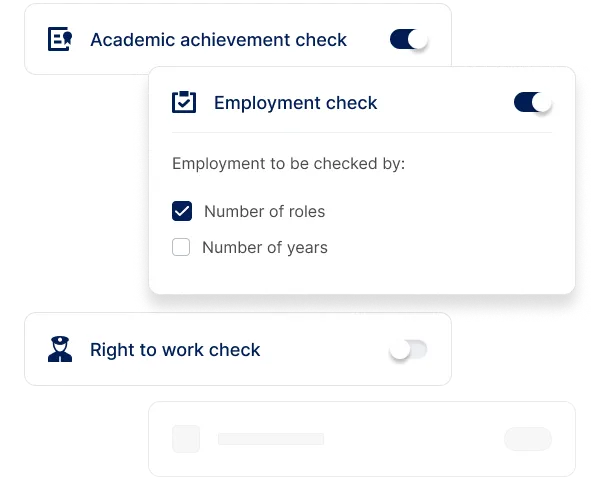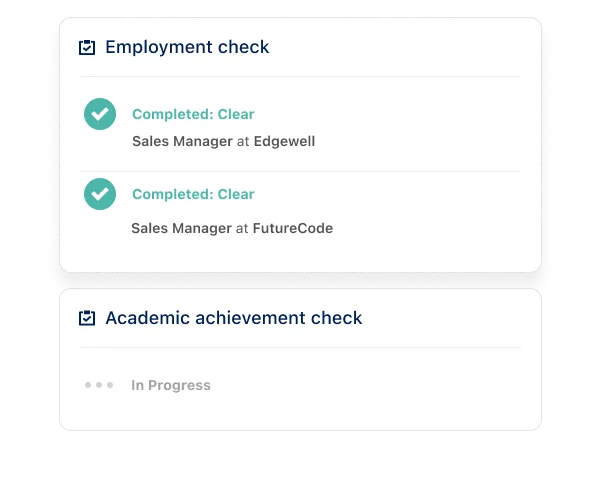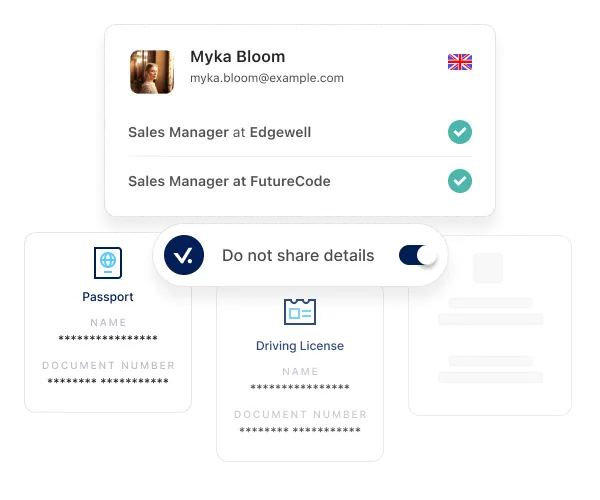Comprehensive Guide to Employment Background Checks in Iceland
Everyday, Veremark carries out background screening all over the world for companies who need checked and verified employees. If you’re looking for background checks in Iceland, here’s some information that might help.
Iceland, renowned for its stunning landscapes and vibrant culture, has also emerged as a significant player in the global economy. With a small but growing population, the demand for skilled labour is increasing across various sectors, including technology, tourism, and renewable energy. As businesses expand, the need for thorough employment background checks becomes crucial to ensure the integrity and competence of the workforce. This guide delves into the landscape of employment background checks in Iceland, covering legal frameworks, common practices, privacy considerations, and best practices for employers.
Introduction to Iceland’s Growing Economy and Workforce
Iceland has witnessed substantial economic growth, driven by its tourism sector, innovative technology companies, and a commitment to renewable energy. The country boasts a highly educated workforce, with a significant portion of the population having completed higher education. As new businesses enter the market and existing ones expand, the competition for skilled professionals intensifies, necessitating comprehensive employment background checks to safeguard organisations and ensure the hiring of qualified candidates.
Legal Framework and Data Protection
The legal landscape for employment background checks in Iceland is characterised by a blend of national laws and adherence to European data protection regulations. Understanding this framework is vital for employers seeking to conduct background checks in compliance with legal standards.
Key Legal Aspects of Background Checks in Iceland:
- Legality and Relevance: Employers in Iceland can conduct background checks, provided they are relevant to the job position. It is essential to ensure that checks do not invade candidates’ privacy or are disproportionate to the role’s requirements.
- Explicit Consent: Before conducting any background checks, employers must obtain explicit written consent from candidates. This consent must be informed, meaning candidates should understand what checks will be performed and why.
- Data Protection Regulations: Iceland follows the General Data Protection Regulation (GDPR) and the Icelandic Data Protection Act, which regulate the processing of personal data. Employers must comply with these regulations, ensuring candidates’ data is handled responsibly and securely.
Common Background Checks in Iceland
Employers in Iceland typically carry out several types of background checks to assess a candidate’s suitability for employment. The most common checks include:
Criminal record checks are crucial for positions that require a high level of trust, such as those in healthcare, education, or finance. Employers must obtain consent from candidates and follow the appropriate legal procedures to request these checks.

Verifying a candidate’s employment history is a standard practice in Iceland. Employers reach out to previous employers to confirm the accuracy of job titles, responsibilities, and employment dates. This process ensures that candidates have the experience they claim.

Education checks are vital for confirming academic qualifications. Employers typically verify degrees and certifications, particularly for roles requiring specific educational backgrounds, such as engineering, medicine, or teaching.

Global watchlist checks involve screening candidates against international sanctions lists, criminal databases, and regulatory watchlists. These checks are particularly relevant for companies engaged in international business or financial services.


Seamless integration with existing hiring software
Plug our award-winning background screening software into your existing hiring workflows with Veremark's super-fast RESTful API.
Privacy and Data Security
Privacy and data security are paramount when conducting employment background checks in Iceland. Employers must adhere to strict guidelines to protect candidates' personal information and comply with data protection laws.
Key Considerations for Privacy and Data Security:
- Informed Consent: Employers must obtain explicit written consent from candidates before collecting personal data for background checks. This consent should inform candidates of what data will be collected and how it will be used.
- Data Minimisation: Employers should only collect the minimum necessary personal data required to perform background checks. This practice aligns with GDPR principles and helps mitigate risks associated with data handling.
- Secure Data Storage: Personal data collected during background checks must be stored securely, with access limited to authorised personnel. This protects candidates’ privacy and reduces the likelihood of data breaches.
- Data Retention and Deletion: Employers must establish clear policies regarding how long candidate data will be retained. Under GDPR, personal data should only be retained for as long as necessary for its intended purpose and must be securely deleted thereafter.
Turnaround times
Industries Benefiting from Background Checks
Healthcare
The healthcare sector requires rigorous background checks to verify staff qualifications and criminal histories, ensuring patient safety and compliance with regulations.
Finance and Banking
In the finance sector, background checks are essential for compliance with regulatory frameworks and preventing financial crimes. Criminal record checks and global watchlist screenings are particularly critical.
Education
Employers in the education sector often conduct criminal background checks on individuals working with children or vulnerable populations, ensuring the safety of students.
Tourism and Hospitality
In the tourism industry, background checks help ensure that employees uphold the high standards of service and safety expected by visitors.
Best Practices for Employers Conducting Background Checks
To ensure compliance and efficiency, employers in Iceland should adhere to the following best practices when conducting background checks:
- Obtain Explicit Written Consent: Always secure informed consent from candidates before conducting background checks, ensuring transparency and compliance with legal standards.
- Conduct Relevant Checks: Perform only those background checks that are necessary for the specific role to avoid unnecessary invasiveness.
- Engage Reputable Providers: Work with trusted, compliant third-party background check providers familiar with Icelandic regulations to ensure accurate and efficient checks.
- Ensure GDPR Compliance: Follow GDPR guidelines throughout the background check process, including obtaining consent, data minimisation, secure storage, and timely deletion of data.
- Plan for Turnaround Times: Factor in the time required for background checks when establishing recruitment timelines to avoid delays in the hiring process.
How it works




Data protection by design
Vault-like security with ISO and SOC2 certification
As Iceland continues to grow as a competitive player in the global economy, employment background checks are becoming an indispensable part of the hiring process for businesses. By adhering to legal standards, focusing on relevant checks, and implementing best practices for data protection, employers can safeguard their organisations and build a trustworthy workforce.
Conducted thoughtfully and in compliance with Icelandic and European regulations, background checks empower employers to make informed hiring decisions, contributing to a secure and effective workplace that fosters growth and innovation.
Read more
FAQs
This depends on the industry and type of role you are recruiting for. To determine whether you need reference checks, identity checks, bankruptcy checks, civil background checks, credit checks for employment or any of the other background checks we offer, chat to our team of dedicated account managers.
Many industries have compliance-related employment check requirements. And even if your industry doesn’t, remember that your staff have access to assets and data that must be protected. When you employ a new staff member you need to be certain that they have the best interests of your business at heart. Carrying out comprehensive background checking helps mitigate risk and ensures a safer hiring decision.
Again, this depends on the type of checks you need. Simple identity checks can be carried out in as little as a few hours but a worldwide criminal background check for instance might take several weeks. A simple pre-employment check package takes around a week. Our account managers are specialists and can provide detailed information into which checks you need and how long they will take.
All Veremark checks are carried out online and digitally. This eliminates the need to collect, store and manage paper documents and information making the process faster, more efficient and ensures complete safety of candidate data and documents.
In a competitive marketplace, making the right hiring decisions is key to the success of your company. Employment background checks enables you to understand more about your candidates before making crucial decisions which can have either beneficial or catastrophic effects on your business.
Background checks not only provide useful insights into a candidate’s work history, skills and education, but they can also offer richer detail into someone’s personality and character traits. This gives you a huge advantage when considering who to hire. Background checking also ensures that candidates are legally allowed to carry out certain roles, failed criminal and credit checks could prevent them from working with vulnerable people or in a financial function.
Transform your hiring process
Request a discovery session with one of our background screening experts today.



%20(1)%20(2)%20(2)%20(1).jpg)
%20(1).webp)
